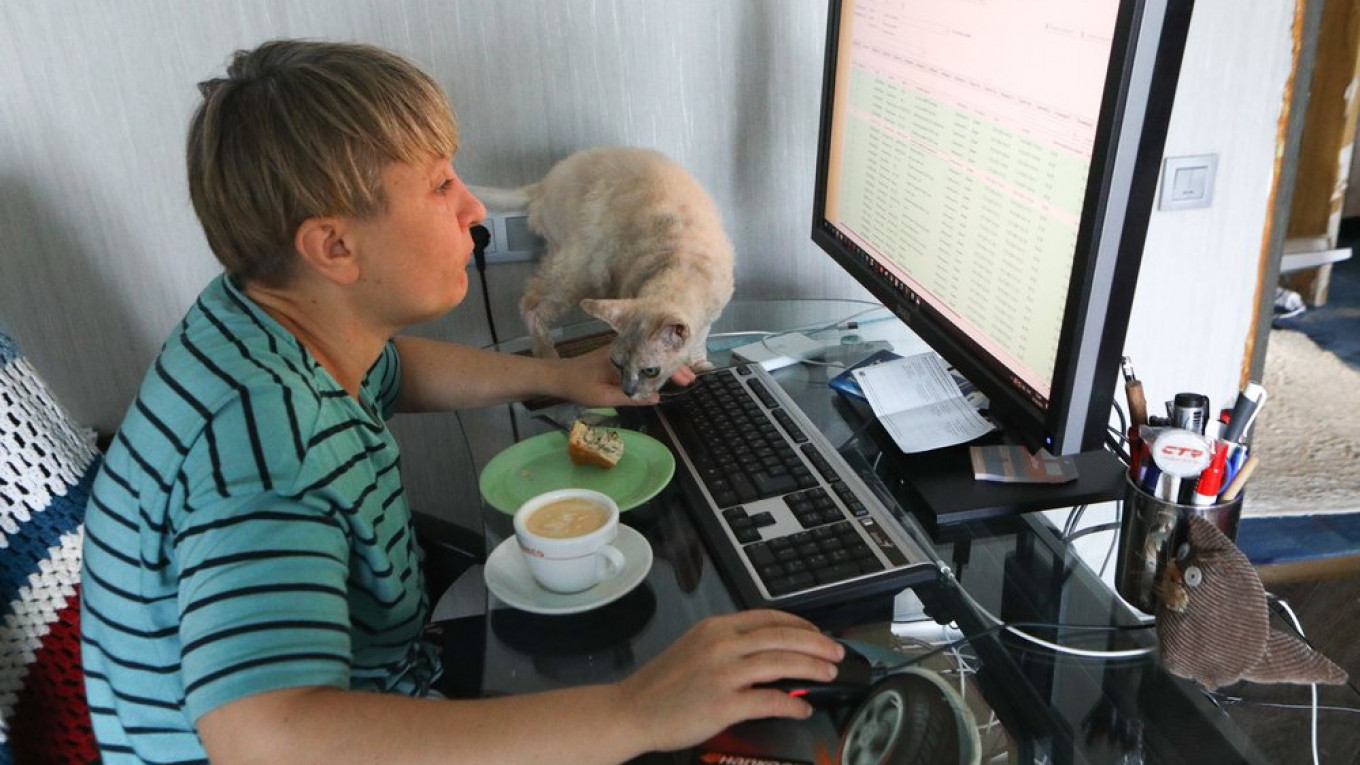Russia could extend President Vladimir Putin’s weeklong paid time off for another week as it looks to fight the deadly coronavirus outbreak, the Kommersant business daily reported Thursday.
Putin declared a “non-working week” from March 28 to April 5 to encourage Russians to stay home and slow the spread of coronavirus, which has infected 2,777 and killed 24 Russians as of Wednesday. Authorities in Moscow, which instituted strict lockdown procedures during the week, plan to enforce self-isolation using government-issued QR codes and other surveillance tools.
Kommersant, without citing sources, said it had obtained information that the “non-working week” will roll over into the week of April 5-11.
“The situation is becoming more complicated in our country,” Putin said during a remote cabinet session Wednesday.
That day, he signed into law jail terms of up to seven years for violating quarantine rules and five years for spreading “fake news” surrounding coronavirus.
Senior government officials have urged Putin to extend the non-working week, citing the virus’ incubation period of up to 14 days.
“We believe these social-distancing measures should be extended,” Deputy Prime Minister Tatyana Golikova said at the remote session.
“But even 14 days is of course not enough,” Anna Popova, who heads Russia’s consumer protection watchdog, said at her briefing.
The Russian government has allocated $18 billion to fight the pandemic and carry out anti-crisis measures, Prime Minister Mikhail Mishustin said.
A majority of Russian regions have, like Moscow, introduced partial lockdown measures to prevent the spread of coronavirus. Chechnya became the first Russian region to seal off its internal borders, a measure set to take effect this Sunday.
Meanwhile, Reuters cited three unnamed officials as saying Wednesday that Russia was considering declaring a nationwide state of emergency to introduce tougher measures.
The Kremlin denied discussing a state of emergency.
A Message from The Moscow Times:
Dear readers,
We are facing unprecedented challenges. Russia's Prosecutor General's Office has designated The Moscow Times as an "undesirable" organization, criminalizing our work and putting our staff at risk of prosecution. This follows our earlier unjust labeling as a "foreign agent."
These actions are direct attempts to silence independent journalism in Russia. The authorities claim our work "discredits the decisions of the Russian leadership." We see things differently: we strive to provide accurate, unbiased reporting on Russia.
We, the journalists of The Moscow Times, refuse to be silenced. But to continue our work, we need your help.
Your support, no matter how small, makes a world of difference. If you can, please support us monthly starting from just $2. It's quick to set up, and every contribution makes a significant impact.
By supporting The Moscow Times, you're defending open, independent journalism in the face of repression. Thank you for standing with us.
Remind me later.






